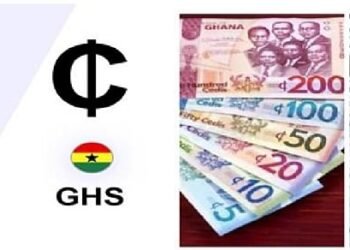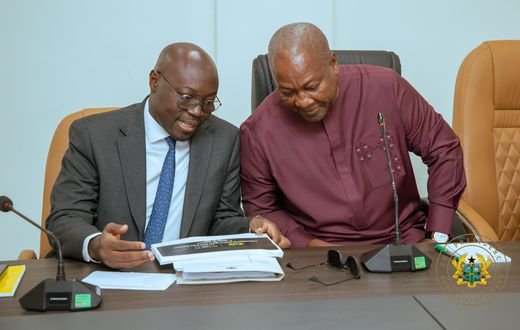The Ghana Stock Exchange (GSE) witnessed a sharp dip in market activity at the close of the first weekday of trading, with trading volume and turnover plummeting dramatically.
Despite this slump in activity, the market indices showed remarkable resilience, maintaining the bullish momentum that has characterized 2025.
According to official data, a total of 220,174 shares were traded, representing a 90% decline in volume compared to the previous trading session on Friday, October 17. The total market value of these trades amounted to GHS 440,603.87, marking a 95% drop in turnover.
Market watchers attribute this sharp slowdown to cautious investor sentiment following weeks of strong rallies across multiple equities. With most investors adopting a wait-and-see approach ahead of upcoming earnings releases and macroeconomic updates, trading activity has temporarily cooled.
Winners and Losers: Fan Milk Leads the Pack
Out of 21 listed equities that participated in trading, only three stocks recorded gains while one declined, reflecting a generally subdued market sentiment.
Fan Milk Ghana PLC emerged as the session’s top performer, climbing 5.73% to close at GHS 7.93 per share, driven by renewed investor interest following reports of improved production efficiency and expanding distribution channels. CalBank PLC followed with a modest 1.18% gain, while NewGold ETF added 0.2% to its value.
The only equity to lose ground was MTN Ghana, which fell marginally by 0.23%, closing at GHS 2.17 per share. Market analysts suggest that MTN’s dip was largely due to profit-taking after sustained price appreciation over the past month.
In terms of volume, Hords Limited led trading with 60,000 shares, followed closely by Republic Bank Ghana with 58,497 shares. MTN Ghana and Intravenous Infusions also featured prominently, with 31,822 shares and 20,000 shares traded respectively.
Despite the decline in total volume, the diversity of participating equities highlights the growing depth of Ghana’s capital market, with increased representation from both financial and non-financial sectors.
Index Performance: Stability Amid the Slowdown
Interestingly, the market’s benchmark indices remained largely stable despite the decline in activity. The GSE Composite Index (GSE-CI) slipped by just 5.73 points (-0.07%), closing at 8,490.20 points. This reflects a 1-week gain of 0.1%, a 4-week gain of 9.14%, and an impressive year-to-date growth of 73.68% — one of the strongest performances among African stock markets in 2025.
The GSE Financial Stocks Index (GSE-FSI) fared even better, inching up 0.03% to close at 4,064.90 points. This index has recorded a 1-week gain of 2.82%, a 4-week gain of 11.25%, and a year-to-date increase of 70.74%, underscoring the strength of Ghana’s banking and financial equities.
The market capitalization of the Ghana Stock Exchange stood at GHS 168 billion, maintaining its upward trajectory despite the temporary trading lull. The resilience of the market’s value base reflects growing investor confidence, supported by improving macroeconomic conditions, easing inflation, and a more stable exchange rate.
Investor Sentiment and Outlook
Analysts believe the sharp drop in daily trading activity is not necessarily a cause for concern but rather a natural cooling-off period after weeks of intense trading and price surges. Market corrections like this are healthy, said a market analyst. They allow investors to consolidate gains while providing opportunities for long-term players to re-enter the market at lower price levels.
With strong fundamentals underpinning the GSE and renewed interest from foreign investors, expectations remain high that trading activity will rebound in the coming weeks. The exchange’s digitalization drive and increasing participation from institutional investors are also expected to enhance liquidity and market depth.
While Monday’s trading session painted a picture of temporary slowdown, the underlying strength of the Ghana Stock Exchange remains evident. The combination of stable indices, resilient financial stocks, and a bullish year-to-date performance underscores the market’s ability to weather short-term fluctuations.
As Ghana continues to strengthen its macroeconomic stability and corporate profitability improves, the GSE is well-positioned to sustain its growth trajectory into the final quarter of 2025.
READ ALSO: 20% Appreciation of the Cedi Will Hurt the Totality of the Economy, Economist Cautions























